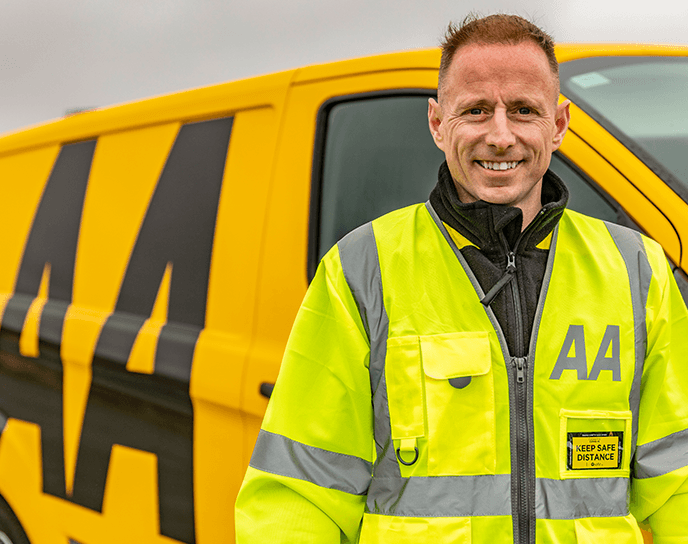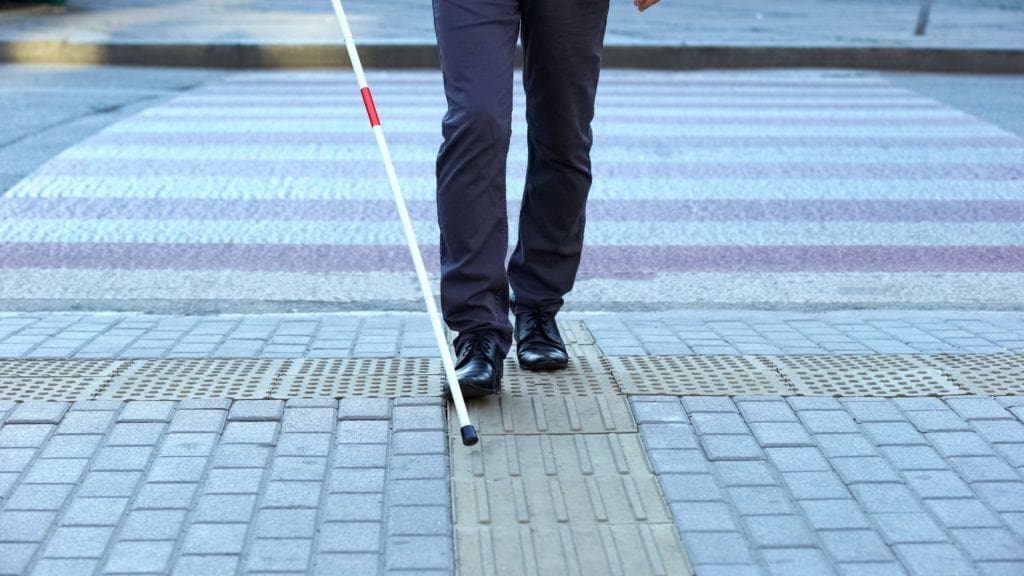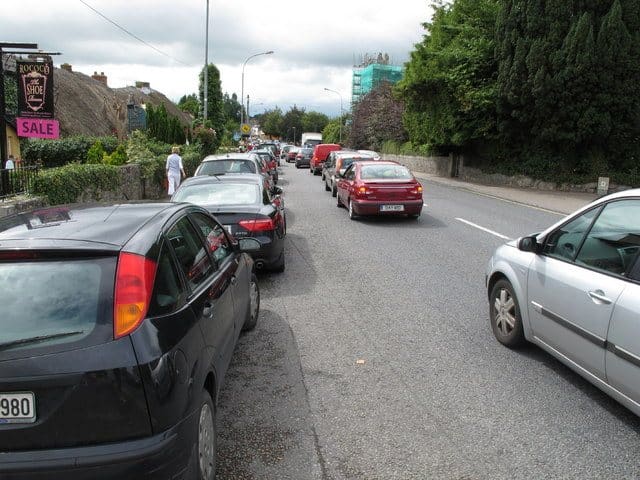Three organisations have expressed their concerns recently about the safety of e-scooter use in Ireland. They say the Government has not considered the needs of disabled pedestrians in the new Road Traffic Bill – including people who are blind or vision impaired, wheelchair users or elderly people.
The National Council for the Blind of Ireland (NCBI), along with the Irish Wheelchair Association and Irish Guide Dogs for the Blind are appealing to Minister for Transport Eamon Ryan to include a number of key changes in the bill.
The new Road Traffic Bill, which legislates the use of e-scooters and e-bikes on Irish roads for the first time, was debated in the Dáil last week and should be concluded before the end of this year.
National Council for the Blind of Ireland (NCBI)
Head of Communications and Advocacy at NCBI, June Tinsley, tells AA Ireland that e-scooters are “becoming more and more common so there now needs to be clear, comprehensive and robust legislation in place that protects the rider and those using public spaces”.
“We [NCBI] want to ensure that the current legislation that’s being debated is improved upon, so that the needs of disabled pedestrians are not overlooked and that their confidence and independence are not compromised,” Tinsley adds.
The NCBI have said efforts to have audio devices mandated so that people can hear approaching scooters have so far gone unheeded.
“There needs to be an audio system installed in any e-scooter at the design stage, so that people who are blind or vision impaired can hear them approaching.”
This is already an EU-wide regulation for electric vehicles – they have to have an artificial sound when they’re travelling under 30kmph: “an audio system has to be installed in electric vehicles, so why can’t it be installed in e-scooters”.
The NCBI also says near misses with visually impaired people attempting to cross roads and walk on footpaths, where silent e-scooters present a potential threat, is an issue that needs to be recognised in the design of legislation. They also say that there needs to be designated parking bays, that are separate from the footpath.
“We need to make sure e-scooters are not parked against railings or lampposts, where they could cause an obstruction.”
Under the new Bill, a speed limit of 25kmph will be implemented, but according to the NCBI, this maximum speed limit is too high.
“The legislation is very unclear surrounding the safety measures, as it is around insurance and registration. So in instances of collision, it’s unsure as to what would happen.”
Anna Cullen from AA Ireland states that: “We are broadly supportive of e-scooters becoming legal in Ireland, but only if the necessary measures are in place to protect all road users. Of course this includes people who are blind or vision impaired, wheelchair users or elderly people. They deserve to be able to share the road safely”.
Irish Guide Dogs for the Blind
Advocacy and Policy Officer for Irish Guide Dogs for the Blind, Léan Kennedy, says that “whilst Guide Dogs are trained to guide their blind or vision impaired owners through busy routes, they can be put under undue stress if they are forced to try to anticipate the unpredictable movements of an e-scooter”.
“Often the pedestrian footway is the only option to maintain someone’s independence and as such e-scooters would be safer for all if they were required to use cycle lanes or roads,” Kennedy adds.
Anna Cullen from AA Ireland states: “We believe the introduction of legislation will have a great potential to help further reduce our over-reliance on the private car for day-to-day commuting”.
“It is important, however, that at all times any supporting legislation legalising such devices protects the safety of all road users through restrictions on what kind of e-scooter can be used and where”.
The Irish Wheelchair Association
Public Engagement Manager at the Irish Wheelchair Association, John Fulham, says that there are “very obvious benefits to the introduction of e-scooters as part of an overall transport strategy on climate change. But what we want is that they’re introduced in a manner that is safe and fair for people with disabilities”.
“My experience with e-scooters is growing. From those who I have seen using them, the majority are not using them safely. They’re on the footpaths. They’re driving them too fast,” adds Fulham.
A recent survey by AA Ireland found that 60% of AA Customers do not think e-scooters are used safely in Ireland, 27% think they are used safely “most of the time”, while 2% think they are used safely all the time.
If legalised, 64% said strict speed limits should be put in place, while 84% said safety restrictions should be put in place – such as obligatory helmets, lights and hi-vis clothing.
4% said e-scooters should be allowed on footpaths, however the Irish Wheelchair Association believes they shouldn’t.
“The legislation doesn’t specify this. It can be very unsettling for people with mobility issues who don’t have the ability to move or jump out of the way quickly.”
“Scooter riders and drivers should keep their speed down. Be considerate of other road users. Be aware of the general rules of the road,” adds Fulham.
You can read about the new Road Traffic Bill and what the future holds for e-scooters here. Our recent survey also shows that 49% think e-scooters should be made legal, see the full results from the poll here.
There have never been so many ways to adapt vehicles for drivers and passengers with disabilities or reduced mobility. We found out what’s available.










